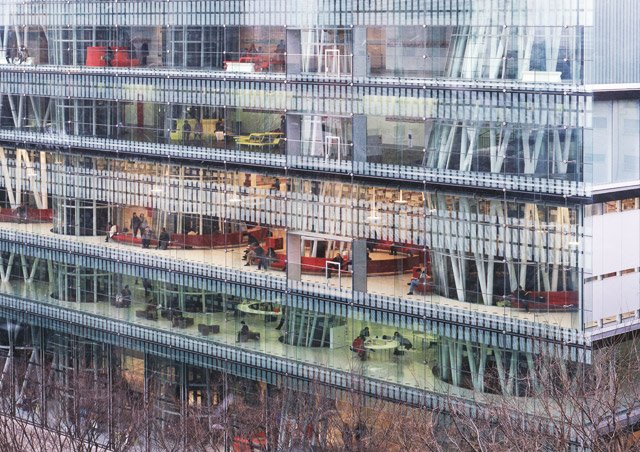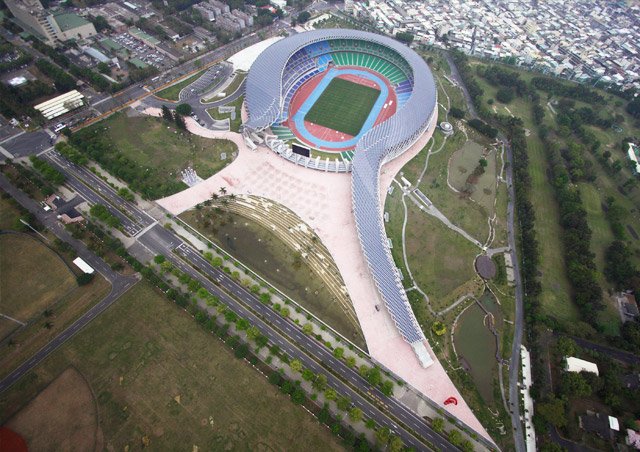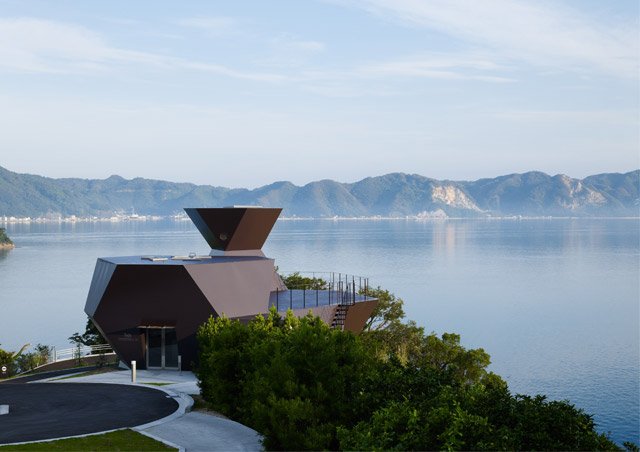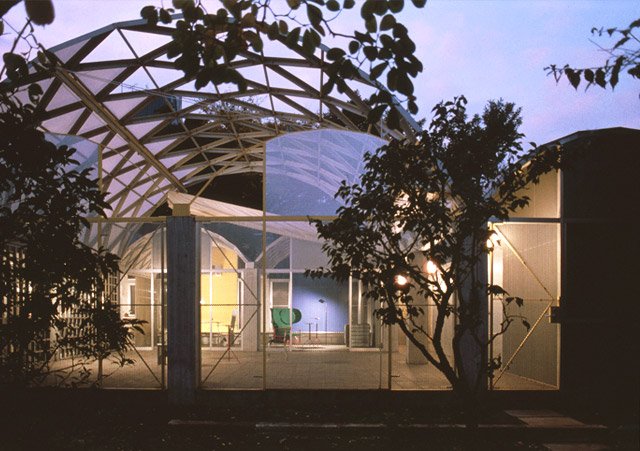Japanese architect Toyo Ito will receive 2013 Pritzker Architecture Prize, a prestigious award, known throughout the world as architecture’s highest honor, often compared to Nobel Prize.
The formal ceremony will take place at the John F. Kennedy Presidential Library and Museum in Boston, Massachusetts on Wednesday, May 29. The location was designed by another Pritzker Laureate, Ieoh Ming Pei who received the prize in 1983.
“We are particularly pleased to be holding our ceremony at the Kennedy Library, and it is even more significant because the date is John F. Kennedy’s birthday,” said Thomas J. Pritzker, chairman of The Hyatt Foundation which sponsors the prize.
“Creating outstanding architecture for more than 40 years, he has successfully undertaken libraries, houses, parks, theaters, shops, office buildings and pavilions, each time seeking to extend the possibilities of architecture,” said Pritzker Prize jury chairman, The Lord Palumbo, quoting from the jury citation that focuses on the reasons for this year’s choice.
“Architecture is bound by various social constraints. I have been designing architecture bearing in mind that it would be possible to realize more comfortable spaces if we are freed from all the restrictions even for a little bit. However, when one building is completed, I become painfully aware of my own inadequacy, and it turns into energy to challenge the next project. Probably this process must keep repeating itself in the future.
“Therefore, I will never fix my architectural style and never be satisfied with my works,” said Toyo Ito after winning the prize.

Photo by Tomio Ohashi
Toyo Ito, 71, has tried to develop in architecture lightness that resembles air and wind.
One of his first projects in 1971 was a home in a suburb of Tokyo. Called “Aluminum House,” the structure consisted of wooden frame completely covered in aluminum. The house “White U”, created in 1976 for his sister, generated a great deal of interest in his works.
Sendai Mediatheque, completed in 2001 in Sendai City, Miyagi, Japan, the library that survived a catastrophic earthquake in 2011, is considered one of the high points of his career.

Photo by Tomio Ohashi
“The Mediatheque differs from conventional public buildings in many ways. While the building principally functions as a library and art gallery, the administration has actively worked to relax divisions between diverse programs, removing fixed barriers between various media to progressively evoke an image of how cultural facilities should be from now on,” Toyo Ito said in the Phaidon book, Toyo Ito.
At TOD’S Omotesando building in Tokyo, “the building skin also serves as structure,” according to the jury. Citing the Municipal Funeral Hall in Gifu Prefecture, Tokyo’s Tama Art University Library, and London’s 2002 Serpentine Gallery Pavilion, the jury calls attention to some “of his many inspiring spaces.”
Toyo Ito has received numerous international awards.
Ito became an architect of international importance during the early-2000s leading projects throughout Asia, Europe, North America and South America. Ito designed the Main Stadium for the 2009 World Games in Kaohsiung and the under-construction Taichung Metropolitan Opera House, both in Taiwan. In Europe, Ito and his firm renovated the façade of the Suites Avenue Apartments with striking stainless steel waves and, in 2002, designed the celebrated temporary Serpentine Pavilion Gallery in London’s Hyde Park.

Photo by Fu Tsu Construction Co., Ltd.
In 2010 he won the 22nd Praemium Imperiale in Honor of Prince Takamatsu; in 2006, The Royal Institute of British Architects’ Royal Gold Medal; in 2002, the Golden Lion for Lifetime Achievement for 8th Venice Biennale International Exhibition. Calling him a “creator of timeless buildings,” the Pritzker Jury cites Ito for “infusing his designs with a spiritual dimension and for the poetics that transcend all his works.”
His sense of social responsibility was appreciated by the Pritzker Jury who cited his work on “Home-for-All.”
The earthquake and tsunami of March 11, 2011, spurred Ito and a group of other Japanese architects to develop the concept of “Home-for-All” communal space for survivors.
“The relief centers offer no privacy and scarcely enough room to stretch out and sleep, while the hastily tacked up temporary housing units are little more than rows of empty shells: grim living conditions either way. An architect is someone who can make such spaces for meager meals show a little more humanity, make them a little more beautiful, a little more comfortable,” said Ito in Toyo Ito – Forces of Nature published by Princeton Architectural Press.
Ito never dreamed he would become an architect—his passion was baseball.
Toyo Ito was born on June 1, 1941 in Keijo (Seoul), Korea (Japanese). It was while attending the University of Tokyo that architecture became his main interest. For his undergraduate diploma design, he submitted a proposal for the reconstruction of Ueno Park, which won the top prize of the University of Tokyo.
Toyo Ito began working in the firm of Kiyonori Kikutake & Associates after he graduated from Tokyo University’s Department of Architecture in 1965. By 1971, he was ready to start his own studio in Tokyo, and named it Urban Robot (Urbot). In 1979, he changed the name to Toyo Ito & Associates, Architects.

Photo by Daici Ano.
Recently, Toyo Ito has designed a museum of architecture that bears his name on the small island of Omishima in the Seto Inland Sea. The museum opened in 2011 and showcases his past projects as well as serving as a workshop for young architects. Two buildings comprise the complex, the main building “Steel Hut” and the nearby “Silver Hut,” which is a recreation of the architect’s former home in Tokyo, built in 1984.

Photo by Tomio Ohashi
Pritzker Architecture Prize was founded in 1979 by the late Jay A. Pritzker and his wife, Cindy. The award honors annually “a living architect whose built work demonstrates a combination of those qualities of talent, vision and commitment, which has produced consistent and significant contributions to humanity and the built environment through the art of architecture.” The laureates receive a $100,000 grant and a bronze medallion.
Toyo Ito is the sixth Japanese architect to become a Pritzker Laureate — the first five being the late Kenzo Tange in 1987, Fumihiko Maki in 1993, Tadao Ando in 1995, and the team of Kazuyo Sejima and Ryue Nishizawa in 2010.
